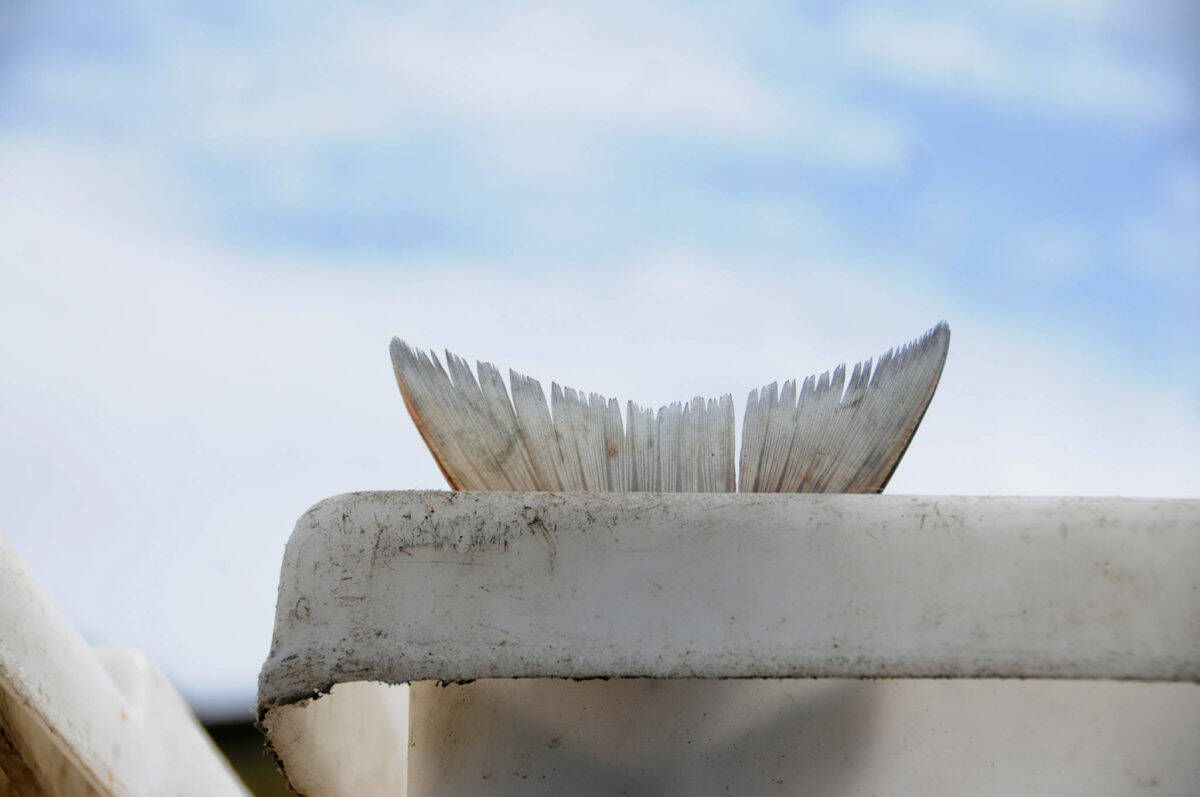Set-netting in Cook Inlet could be expanded in some areas under a proposal that will be considered by the Alaska Board of Fisheries early next year.
The board voted during an Oct. 20 work session to deliberate on an adopted proposal to amend the Kenai River Late-Run King Salmon Management Plan, which will grant Cook Inlet set-netters in the upper subdistrict access to a 600-foot fishery after 13,500 large kings have already escaped.
Currently, the fishery is closed when large king escapement isn’t projected to be greater than 15,000 fish, Brian Marston, the commercial fisheries area management biologist with the Alaska Department of Fish and Game, said.
The board voted to bring the measure for consideration to the March meeting of Board of Fisheries by a vote of 5-2.
Board of Fisheries member McKenzie Mitchell proposed the regulatory change at the work session last month.
In an interview with the Clarion, she said she introduced the amendment in an effort to provide set-netters greater opportunity to fish after king escapement is reached.
She said set-netters aren’t permitted to fish at all, “meanwhile we have a bunch of sockeye running up the river.”
Mitchell said that since every area in the state is only discussed on a rotation, the proposed change — referred to as a board-generated proposal — allows discussion about the Cook Inlet in an expedited fashion.
According to Glenn Haight, the executive director of the Board of Fisheries, the Cook Inlet region wasn’t scheduled to be discussed until 2024.
Mitchell said there are three ways to expedite a regulatory change: through an emergency petition, an agenda change request or a board-generated proposal. Since board members voted the proposition didn’t meet the criteria for an emergency petition or an agenda change request, they evaluated whether or not it could be classified as a board-generated proposal during last month’s work session.
According to the Alaska Boards of Fisheries and Game policy, criteria for board-generated proposals are as follows: whether the proposal is in the public’s best interest, whether the proposal is urgent, whether the current processes are insufficient in addressing the issue, and whether or not there is reasonable and adequate opportunity for public comment.
Mitchell said the proposition, in her eyes, meets the criteria to be considered a board-generated proposal.
“I do feel that this is an important issue, which I’ve stated on the record previously, and so I’m pursuing it through … what I believe to be the appropriate regulatory process,” Mitchell said during the work session. “This proposal sets up a bottom-bound to make sure that (escapement) is met.”
During the work session she said she believes the regulatory change will ensure a sustainable level of kings reach escapement.
Board members Israel Payton and John Jensen, the vice chair of the body, voted not to bring the proposal to the statewide meeting.
Members Mitchell, John Wood, Indy Walton, Gerad Godfrey and Chair Märit Carlson-Van Dort voted in favor of the plan meeting the criteria to be considered a board-generated proposal.
Payton said during the deliberation process that he doesn’t think the proposal meets the criteria.
“Is it in the public’s best interest? Well, that’s really in the eye of the beholder,” he said. “Certainly it would be in the best interest of set-netters — I don’t think that’s the general public, though.”
Payton also stated during the work session that he was still in “king conservation mode.”
“I just think this is a bad route to go,” he said. “On the board-generated criteria, I don’t think it’s meant to be a work-around when emergency petitions don’t work and (agenda change requests) don’t work.”
Jensen, the other board member who voted against the evaluation, said during the work session that approving the proposal could affect many other regulations.
“It may meet some of the criteria, but it’s still a go-around from the regular process,” Jensen said. “These shouldn’t be used except in very rare instances. For something this big, you think you’re just cracking the door open a little bit here … (but) you’re going to start opening a whole Pandora’s box.”
The proposal to allow set-netting under certain conditions in the Cook Inlet will be brought forth for deliberation at the next Board of Fisheries meetings in Anchorage from March 11 to March 18.
The public comment period ends on Feb. 24.
Reach reporter Camille Botello at camille.botello@peninsulaclarion.com.

